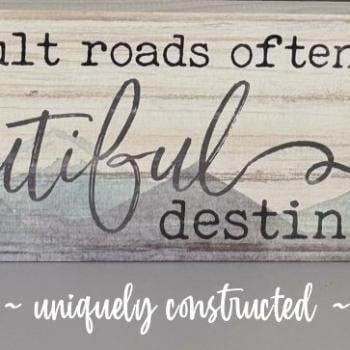When I was in seventh grade, the group of girls I ran around with stopped speaking to me. Every time they passed me in the hall, they would turn their backs and giggle. I felt like an outcast. It was my first experience of real loneliness, and at the time, it felt like the end of the world.
That experience lingered in my emotional backpack for years. Even now, the word loneliness can sometimes trigger the emotion—part melancholy and part loss—of those days. It was only after I had been doing spiritual practice for a while that I began to see that the emotion of loneliness is not only personal. Like anger and fear, loneliness is one of those universal, primal emotions, a groove in humanity's sub-conscious. Most of us—even those of us who like being alone—cannot help falling into it at one time or another.
Loneliness is more about psychic disconnection than physical solitude. To appreciate time alone, most of us need to feel we have a choice (that friends or family are no farther away than a phone-call). Otherwise, time alone can be miserable. In fact, my suspicion is that the primal feeling of loneliness has something to do with a genetic instinct that equates safety with physical closeness to a tribe or family. On that pre-rational level, loneliness can feel like death.
Home alone
Perhaps that's one reason why loneliness, and even the fear of loneliness, can be such a stumbling block on the road to inner growth. Certain journeys cannot be taken unless you're willing to face loneliness, and yet many of us are afraid of it. Have you ever stayed in a relationship long after you knew it wasn't good for you, held onto friends who no longer understand the person you've become, shied away from meditation and contemplation because it meant being by yourself?
The irony, of course, is that when you accept loneliness, you discover something powerful and freeing on the other side of it. My loneliness in the seventh grade taught me compassion for the unpopular and inspired me to seek friendships based on genuine intimacy rather than the need to belong. Years later, the extreme loneliness of a rainy week in Big Sur, stuck in a cabin at the end of five miles of dirt road, catapulted me into my first real experience of present-moment awareness. I still remember the surprising joy of hours spent watching the path the raindrops made as they streaked down the window.
Loneliness, like fear, is a threshold emotion—you have to pass through it if you want to enter the inner world. In fact, loneliness is the shadow side of solitude, that magical and transformative state that poets, mystics, and yogis celebrate as the great laboratory for self-awareness and spiritual growth. If loneliness reeks of alienation and sadness, solitude offers the ground for you to connect to what is essential in yourself. Solitude teaches you how to be with yourself. And without it, you never learn to truly be at home with what you are. "Alone... and the soul emerges," Walt Whitman wrote in a poem celebrating solitude.
So perhaps the real question when you're alone during the holidays, or recovering from a breakup, or wondering why your friends seem so distant and unsupportive, is not "How can I make this empty feeling go away?" Instead, it's "How do I turn the painful state of loneliness into the transformative state of solitude?"
The Power of Solitude
When you the universe forces you to be alone—whether its in physical solitude or in the solitude that arises when you're in a strange city or a failing relationship or around people who don't support you—take it as an opportunity to engage your (sad, alienating) loneliness and turn it into (powerful, transformative) solitude.
Do this by choosing to spend some time alone. You can practice aloneness for half an hour. If you've got more experience, try several hours a day or longer. Whatever the length, commit yourself to a set amount of time.
To engage aloneness, resist turning on the TV or radio, calling a friend, doing your nails, working on the computer, reading, or any of the other distractions you use to keep from being alone with yourself. You can do asana, especially restoratives that help you relax and release. Sleep is off-limits, though. Meditation and self-inquiry or contemplation are perfect ways to use this time.
When you're starting to explore aloneness, you might want to create a program for your alone time including some asana, some contemplation, and some meditation. Keep a journal with you, and write in it when you have the urge.
Don't get too attached to your program, however. You don't want to make it another "activity." It's there to give you the chance to unwind. Optimally, you'll end by just being with yourself.
Begin by making an intention. It could go something like this: "I'll spend (time allotted) alone with myself, consciously exploring the experience, and making space for insight and peace to arise."





